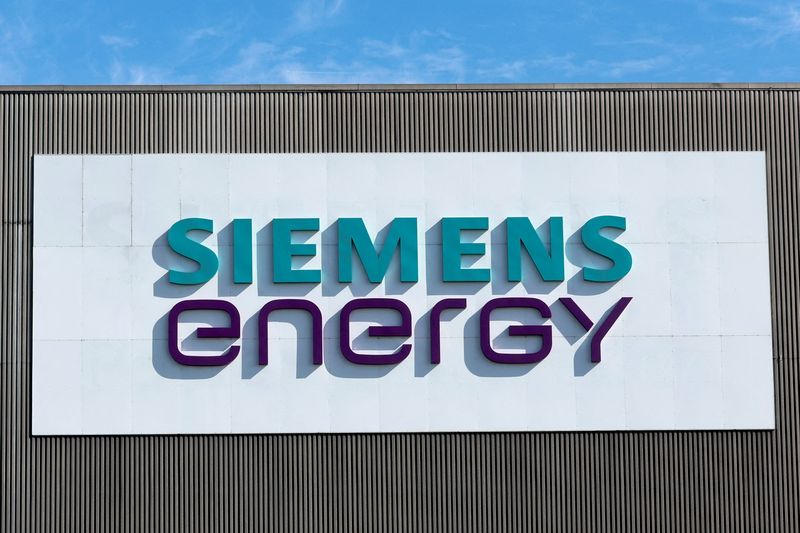Why the U.S. dollar still reigns supreme
Investing.com - Siemens (ETR:SIEGn) Energy (ETR:ENR1n) stock saw strong gains in 2024, but UBS has now downgraded its stance on the German energy company, saying it is “priced for perfection.”
At 07:00 ET (12:00 GMT), Siemens Energy stock fell 3.6% to €50.04 Monday, but has gained over 300% over the last year, driven by strong performance of Gas Services and Grid Technologies divisions, and progress on a turnaround of Siemens Gamesa.
“We believe these factors are more than priced in with several potential risks remaining for the margin turnaround in the Siemens Gamesa business,” analysts at UBS said, in a note dated Jan. 20.
As a result, the Swiss bank has downgraded its stance on the company to ‘sell’ from ‘neutral’, with a price target of €38/share, raised from €23.
“We believe the shares are pricing in flawless execution, and Siemens Energy achieving the upper end of its FY28 targets.”
“Based on our reverse sum of the parts valuation, we estimate the shares are pricing in a >€13bn EV for Siemens Gamesa, which we believe could be ambitious given the potential risks,” UBS said.
The Swiss bank sees several potential risks remaining in the Siemens Gamesa business.
“While we do believe that the company could turn around the profitability of the Siemens Gamesa business (already built into consensus expectations), we see potential risks in the wind turbine business which the market may be overlooking,” UBS said.
It cites market share erosion in onshore, slower growth/ decline in service business (due to lower onshore growth), incremental lost production factor liabilities to customers, and further delays/cost overruns in offshore.
“We note that the business has been indicated to be two years away from just break-even (expected in FY26e), with margins potentially reaching low/mid-single-digit positive levels (3-5%) only in FY28e,” UBS said.
“Additionally, we also note potential macro/geopolitical risks, which we believe may not be priced in, especially in the US (uncertainty of offshore wind market + tariff risks), with the US forming c.20% of the company's backlog.”
